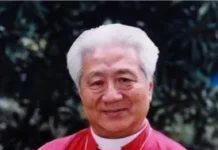COVID-19’s impact on the 80th General Convention has led to a significant number of resignations by members of the House of Deputies.
As of June 8, a total of 234 deputies have resigned or indicated they are not attending GC80. That figure represents 27 percent of 868 originally certified deputies. Among those not attending are the entire deputations of the Dioceses of Cuba, Honduras and Venezuela.
In addition, 99 of an estimated 455 certified alternate deputies—22 percent—have resigned, and 55 of the 483 deputies—11 percent—appointed to legislative committees have resigned from their committees, although some have remained as deputies.
Turnover, or “deputy churn” as it is referred to in the office of the Rev. Gay Clark Jennings, president of the House of Deputies, has been especially intense in the last ten weeks as the start of convention approaches. Since April 1, 128 deputies and 12 alternates representing some 60 dioceses have resigned or said they would not attend. This includes the deputies from Cuba, Honduras and Venezuela.
Deputy turnover can be seen as another consequence of the ongoing pandemic and the resulting delays and changes to General Convention.
“There’s always turnover at any General Convention, but there’s a lot more at this one, partly because it was postponed for a year,” Jennings said in a recent interview. “Some people who could attend in the summer of 2021, especially young people, cannot attend in 2022.”
A variety of factors have contributed to the turnover. Some deputies have contracted COVID. Others are concerned for their own health and the health of family members.
“Twelve deputies and alternates have died, which is more than usual,” Jennings said, and at least four deputies have died from COVID.
Lingering effects of infection are a factor for other deputies. “Two deputies in their 30s have had to resign because they have long COVID,” Jennings said. “That is really sad.”
Having a strictly in-person convention – without a hybrid option that would allow for online participation– factored into some deputies’ decisions.
“I was really hoping that a hybrid option would have been possible, and I would have participated that way, but once it became clear that a hybrid option was not going to be on the table, I made the decision to resign,” said Kathryn Nishibayashi, a lay deputy from the Diocese of Los Angeles.
“Because of some underlying health conditions I have, it just felt too risky to attend even a shortened convention since the COVID pandemic is still significantly present,” she said. “The data from the public health doctor saying that 10 to 12 percent of attendees would test positive for COVID was another contributing factor.
“It was a difficult decision because I truly love being at General Convention and being a deputy,” Nishibayashi said. “This would have been my fourth convention as deputy.”
Health concerns also prompted the resignation of Holli Powell Sturm, a lay fourth alternate in the Diocese of Lexington.
“My husband has severe asthma and COPD (Chronic obstructive pulmonary disease), and I have struggled with chronic illness for 25 years,” Sturm said. “As such, we are both extremely high-risk for COVID complications and I have been living accordingly for the past two years.”
The risk was brought into sharp focus for Sturm after the April meeting of the church’s Executive Council of which she is a member. After returning home, 10 to 12 percent of those who attended the meeting reported testing positive for the virus that causes COVID. “I realized that attending General Convention would not be in line with my need to protect myself and my family,” Sturm said.
“A few weeks later, I was called by the diocesan office and informed that I had been moved up to deputy due to resignations within our deputation, and I had to regretfully decline and resign my deputy status,” she added.
“It’s honestly really devastating to have to do this – I’ve wanted to be a deputy for years, but my health and the health of my family has to take top priority,” said Sturm, who attended General Convention as an alternate deputy in 2015 and 2018.
The Joint Standing Committee on Planning and Arrangements has approved vaccination and masking policies recommended by the Presiding Officers General Convention Design Group to protect the health of deputies, alternates, bishops and support staff attending the gathering.
“I have only had one deputy resign because of vaccination,” Jennings said. “Probably there will be a couple total.”
Some of the turnover in the House of Deputies is not directly related to health considerations, but can still be traced to the pandemic.
“In the past six months, a lot of clergy have been moving,” Jennings said. “Things kind of quieted during the first half of the pandemic. Then as people came out of lockdown, there have just been a lot of transitions. … When everything started to open up more, people began moving out of their dioceses.”
Changes in clerical status have also prompted resignations from deputies who now are unable to represent their previous orders. Six clergy deputies have been elected as bishops, while five lay deputies have been ordained as deacon or priests.
Looking at the reconfigured General Convention from a positive perspective, President Jennings concluded, “I think a lot of people are working very hard to make this convention as good as possible given the circumstances. I think there are a lot of people who really care about their ministry of governance. I’m confident that we will find a way to make this shortened convention meaningful and important in the life of the church. It’s just going to be different.”



